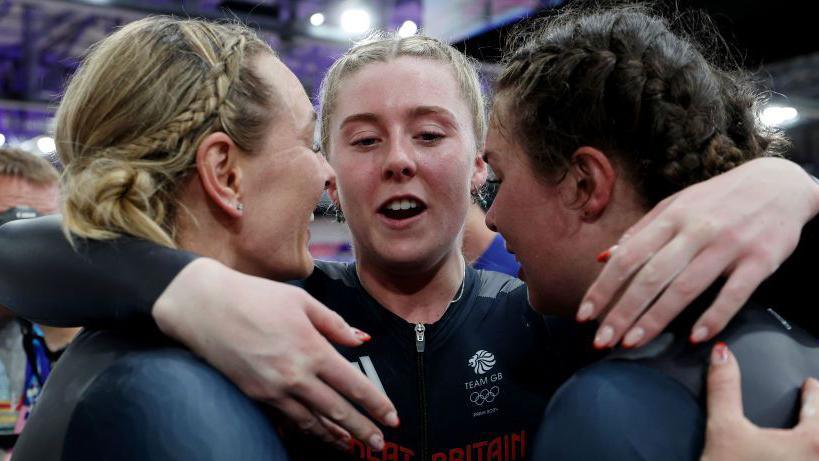What can Team GB medallists hope to earn after their wins?
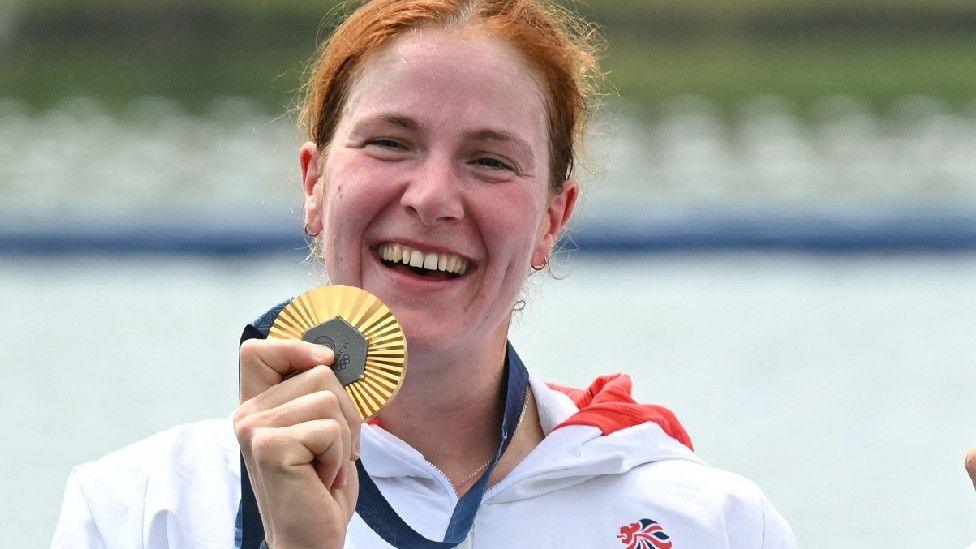
Georgie Brayshaw, whose rowing team won gold in Paris, hopes for a sponsorship
- Published
Standing on the Olympic podium, medal in hand, is the pinnacle of an athlete's career. Years of gruelling training, determination and sacrifice have led to this moment. Everything has paid off - potentially in more ways than one.
In the UK, there's often not huge money in sport itself, unless you're playing at the top levels of football. There is, however, money to be made from advertising and sponsorship.
And this helps to incentivise sports participation, especially if your chosen discipline feels "a bit forgotten", as one Team GB gold medallist tells the BBC.
So, how much money could an Olympic medal translate into for GB’s stars?
Claire Bowden-Hughes, founder and director of En2End sports events agency, says winning any Olympic medal “significantly enhances an athlete’s marketability", making them more attractive to global brands.
This can lead to substantial earnings through sponsorships and endorsements.
High-profile athletes like GB sprinter Dina Asher–Smith, who has won Olympic medals in Rio, Tokyo and Paris, plus a host of others at World and European Championships - "can earn anything between £1m to £10m annually from endorsement deals," Bowden-Hughes says. "For instance, her deals with Nike, Hublot, and Müller are highly lucrative."
Cyclist Emma Finucane looks set to become one of the biggest British names to emerge from the Paris Games. The 21-year-old was part of the team that set a new world record as they took gold in the women's team sprint. She went on to bag herself a bronze in the keirin and on Sunday hopes to go for gold again.
Finucane "has the potential to earn significant income given her recent successes and high visibility", says Bowden-Hughes.
Another gold would mean "her marketability will skyrocket" and "she could potentially earn anything between £1m to £3m annually from various brand deals and endorsements", she predicts.
And it doesn't have to be a gold. A medal of any metal will do, the experts say.
While a bronze medallist who is not yet a huge household name may not earn as much as a gold medallist, substantial sums of between £10,000 to £50,000 per year can still be on the table, Bowden-Hughes suggests.
She cites the example of diver Andrea Spendolini-Sirieix - daughter of First Dates star Fred Sirieix - who claimed bronze with her partner in the women's synchronised 10m platform contest.
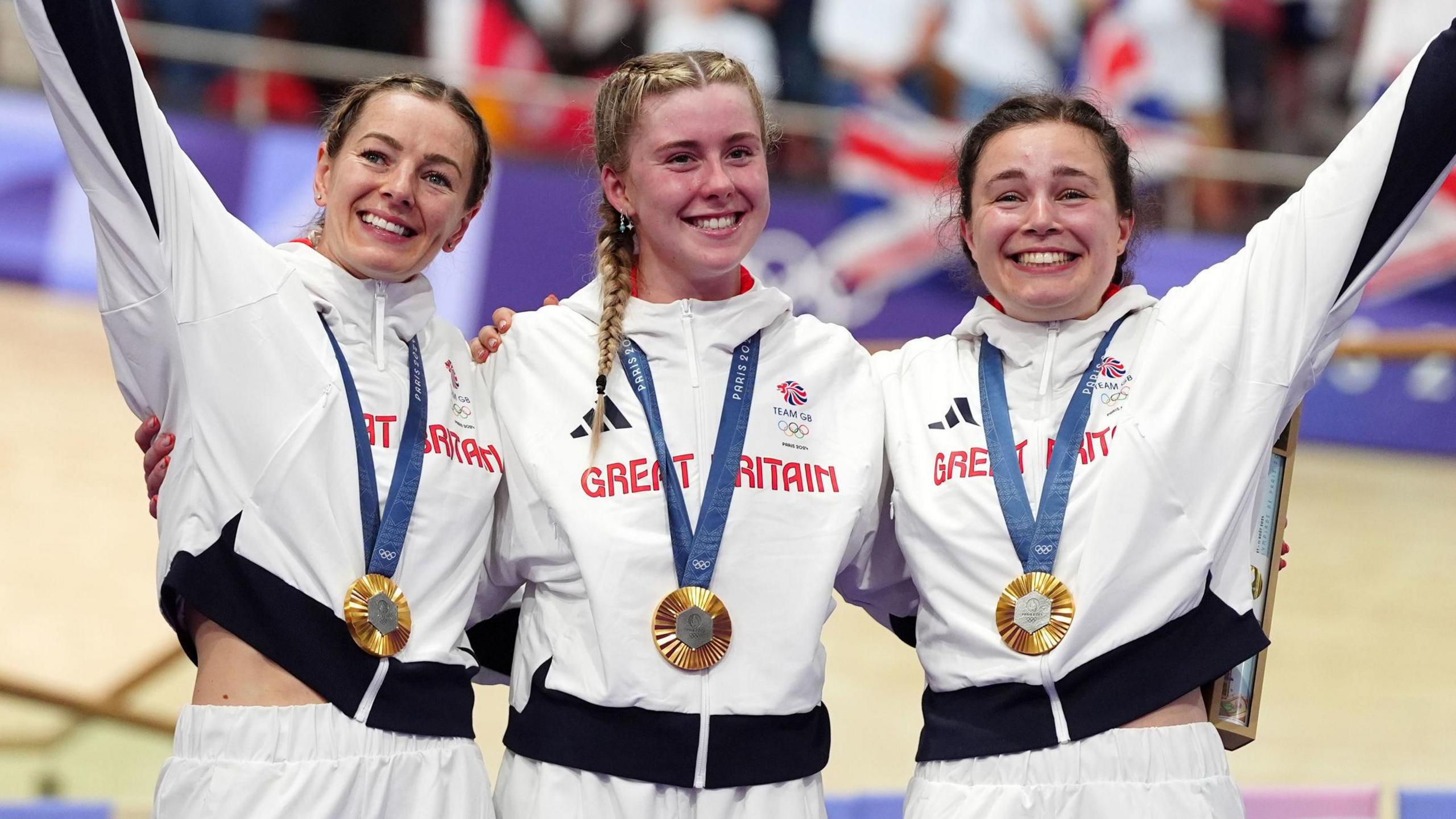
The Olympic success of Emma Finucane (centre) could be highly lucrative for her, say experts
But as well as the individual, earnings "really depend on the sport and its profile", says Nigel Currie, a sponsorship and marketing consultant.
Rower Georgie Brayshaw, whose team took a nail-biting gold in the women's quadruple sculls, tells the BBC she has not yet been approached by any brands offering sponsorship deals or endorsements, but "it would be amazing" if she did.
National Lottery funding through British Rowing pays her £28,000 annually - the highest level available - and British Rowing covers the costs of competitions and camps. But a sponsorship would make it all a bit more "feasible", she says.
"Rowers are a bit forgotten in sponsorships, both personally and as a team as a whole," the 30-year-old adds.
While the team are "very motivated" and want to win regardless of the financial rewards, medal bonuses would potentially make the sport more appealing to others, Brayshaw believes.
She's not talking about huge individual deals either. She suggests supermarket sponsorships that would lead to subsidies on groceries for athletes.
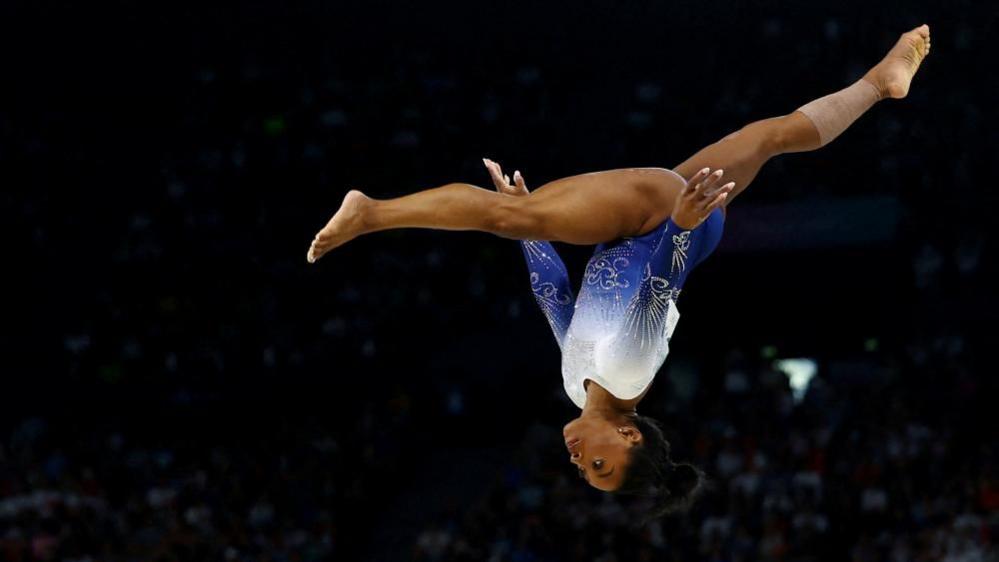
Star US gymnast Simone Biles made $7.1m (£5.6m) last year, according to Forbes
The relatively short careers of professional athletes - who often retire in their 30s or even younger - may also prompt them to look elsewhere for sources of income. Or for those in sports with a smaller following, ways to keep their profile elevated in between the Games.
The public interest in athletes in the wake of an Olympics can lead to TV appearances and book deal offers which "can be from anything in the range of £10,000 up to £500,000 plus, depending on the athlete's profile and story," says Bowden-Hughes.
Strictly Come Dancing has seen a host of Olympians and Paralympians grace its sprung floor, with gold-medal winning swimmer Tom Dean one of the latest celebrities announced to be taking part in this year's show.
One former Strictly contestant is long-jumper Greg Rutherford, whose gold at London 2012 first propelled his name into households across the UK.
"He did just about every TV show going," observes Currie. Rutherford appeared in some of British TV's biggest programmes, including Masterchef and Dancing on Ice.
But the pay pales in comparison to what is received by superstars like Simone Biles and Usain Bolt, whose sporting prowess has made them global household names. This appeal to brands has, in turn, made those sportspeople multi-millionaires.
Forbes estimates that Biles - who now has 11 Olympic medals - made $7.1m (£5.6m) in 2023, $7m of which came from endorsements. Bolt has an estimated net worth of $90m, according to CelebrityNetWorth. It wasn't until their appearances on the Olympic stage that they reached the heights of fame that they currently enjoy.
But the lucrative deals that could be on offer today for the likes of Team GB's gold-winning 800m runner Keely Hodgkinson are a far cry from what Olympians received in decades past.
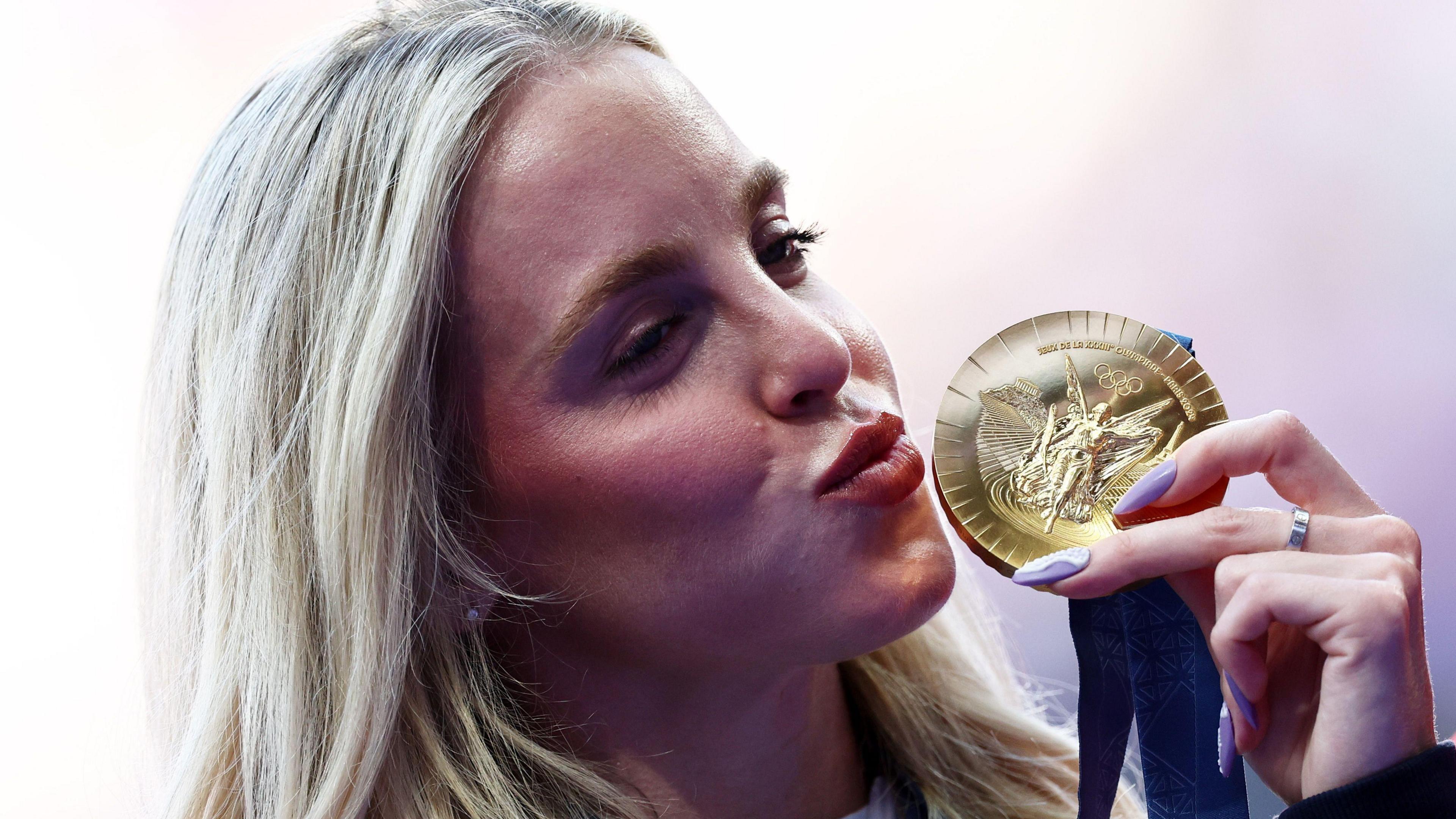
Keely Hodgkinson's gold will likely change her life, says former champion Ann Packer
Following her own 800m victory at the Tokyo 1964 Games, Ann Packer "did a quick ad for Heinz beans… and then I had a three-year contract with Bovril".
It left her with "a very modest amount of money", she told BBC Radio 4's Today programme. But it was enough to set up a home with her husband, fellow Olympian Robbie Brightwell.
Packer retired at age 22 in order to profit from her win, since Olympic rules back then prevented professional athletes from competing.
Unlike today, prizes used to be provided too. “A very popular one was a picnic hamper," Packer said. "You might get a tea set, a set of Pyrex dishes, cookware… it’s better than a kick in the teeth isn’t it?"
The 82-year-old said she had been happy, and the 1960s and 2020s were non-comparable. But one thing hadn't changed.
"I believe that the athletes that are competing today are still motivated in exactly the same way as we were," she said. "Not by the money, but by proving themselves to be either the best they can be - or the best in the world."
- Published7 August 2024
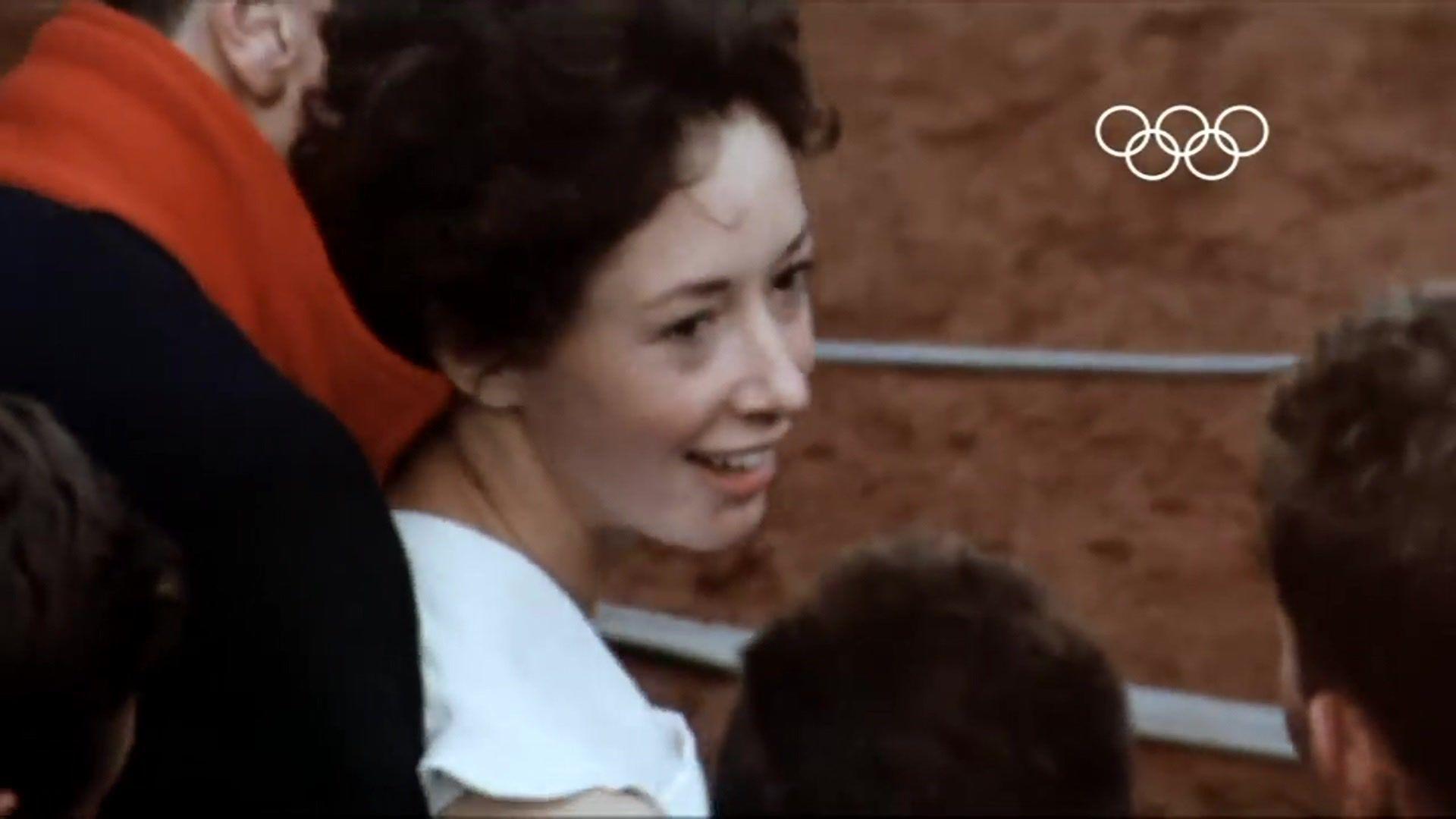
- Attribution
- Published6 August 2024
